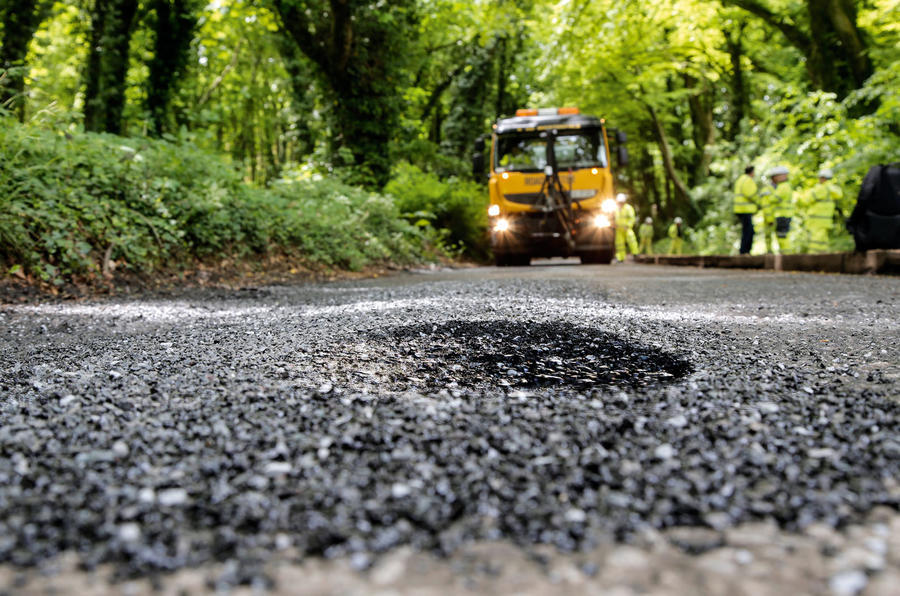The Government has announced that it will begin real-world tests of new road surface technology that will seek to identify a more effective method of repairing potholes – and even stop them forming in the first place.
The scheme, announced by transport secretary Chris Grayling, is called Live Labs and will operate with £22.9 million of government backing. So far, eight authorities have elected to take part, including Buckinghamshire, Staffordshire, Kent, Birmingham and Reading.
Each location will try a different type of technology. Central Bedfordshire won a £1.05m share of the funding to test solar power in footways and a “power road” solution that collects geothermal energy to de-ice car parks and bus stations, preventing pothole formation. Cumbria has been allocated £1.6m to extend its existing plastic roads trial and produce guidance on the use of the new surface material.
Last year, the Government announced that it would provide councils access to a £100m fund to help repair potholes.

But although the Government has stressed a focus on pothole repair, with Grayling stating “potholes are the number one enemy for road users”, only a small percentage of Live Labs will directly investigate this. The majority of funding will instead go towards data monitoring.
Reading, which has received the largest share of the funding, at £4.75m, will trial the use of traffic signal detectors and mobile phone data to provide a real-time view of Thames Valley traffic and produce a ‘public health exposure model’. Solihull and Birmingham will spend £2.65m on the tracking of vehicle journey times and cyclist and pedestrian behaviour via video monitoring to investigate how push messaging will enable people to make better travel decisions.




Join the debate
Add your comment
Whitehall tyrants
The Whitehall regime is the number one enemy for road users.
I apologise for my negativity
I apologise for my negativity, but over recent years I've seen numerous articles about new road surfaces, miracle, cost effective and permanent solutions for pothole repair, etc, etc.. But in West Yorkshire, where I live and work, we never get beyond cheap, quick, amateur repairs of holes and road surfaces which, after a couple of months, are as bad as they were in the first place.
Just now though!
Nobody has come up with the cure for the common Cold, must be a reason why?, so apply that to the continuous eruption of Road defects.....?